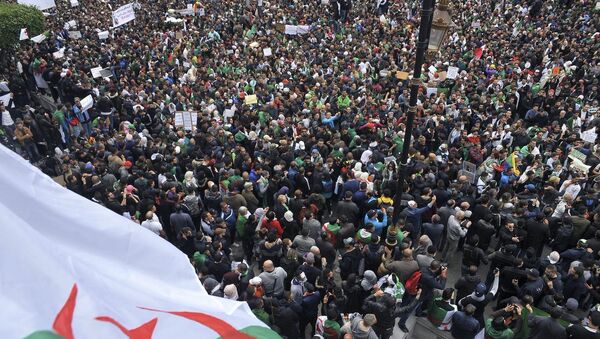“I am deeply convinced that upheaval will occur in the Maghreb. The Maghreb countries will be able to continue to better define their sphere of influence in relation to the Mashriq countries. The people of the Maghreb are fed up with the Middle Eastern powers exporting chaos”.
The people's revolution in Algeria “will not only become a “shield” of future reforms in Tunisia, after the end of the counter-revolutionary period but may also contribute to the revival of the project of the Greater Maghreb (free trade area between Algeria, Libya, Morocco, Mauritania, and Tunisia), which the people of the Maghreb countries are striving for.
“Algerian leaders, overthrown or detained, were very much afraid of the revolution in Tunisia. They were extremely disapproving of the democratically elected and the ongoing fight against corruption. The Algerian government directly or indirectly supported the former regime, most of all fearing the spread of the Tunisian revolution to their country, which, unfortunately, ultimately happened, while Tunisia was once again marked by the weakening of democracy...”
“I believe in the determination of the Algerian people. This is a great nation. For 16 weeks, Algerians have continued to protest on weekends, and, in contrast to France (crisis of the yellow vests movement – ed. note Sputnik), no one has gotten hurt or crippled. This country shows how a peaceful democratic revolution should take place, a revolution during which it is possible to avoid provocations”.
“By accepting the idea of a transitional period along with representatives of the old regime, Tunisians were naive. Unlike them, the Algerians will not allow the system to be preserved. (...) Back in 2012, I made a tour of the capitals of the Maghreb countries in order to promote the rapprochement of Morocco with Algeria. I proposed the abolition of the old borders- ridiculous for both nations and states. But I always got a refusal from the Algerian authorities. (...) If Morocco gets close to Algeria, the main obstacle to the emergence of a large market in the Maghreb will disappear, potentially bringing together more than 100 million people”.
About the fear of the United Arab Emirates authorities of revolutionary sentiments in Arab countries:
“Emirati phobia” is spreading throughout the Arab world. This is particularly evident in relation to Emirate Crown Prince Mohammed bin Zayed Al Nahyan. He is the most hated man in all 22 countries that make up the “Arab world”.
“Emirati authorities have already shown their full hand in the hope of preventing revolutions in Arab countries. But they failed. In Yemen, Syria, Libya, Egypt, and even in Tunisia, there are forces with which they cannot cope. And now, when the revolutions began in Algeria and Sudan, it is beyond their power!”
“Unfortunately, in Western countries, representatives of civil society rather than governments understand me better. In the past, the support of “influential figures” was unsuccessful. In that case, why make the same mistake twice, and continue to pursue a policy that will spawn revolutions and counter-revolutions, weaken states and create all sorts of problems on the borders of Europe?”
The views expressed in this article are those of the speaker and do not necessarily reflect those of Sputnik.

